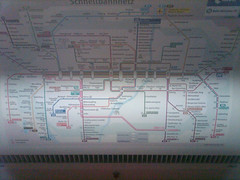I clapped when
Joyce S. McKnight, the presenter, said that she was not planning to use PowerPoint. She is at Empire State College (in NY) in the Center for Distance Learning. She coordinates community and human services. She is an advocate of the
Highlander Model (cf. Myles Horton). She focuses on narratives, as life is a story. I like her approach already.
I remember the first time I read Freire (and then Horton)—it blew my mind. I never considered education as a political topic, but the more I think about how those in power continue to teach the structures that maintain the power relationships and often the status quo (though veiled as change).
Oh, we are introducing ourselves (so fitting for a session on Horton) and mentioning what we hope to get out of this session. I am starting to get concerned, now that we are 15 minutes into the 45 minutes session, and we have only 1/2 of us introduced thus far. Looking out the window now (we are an inside-the-courtyard-facing room), I am noticing how some of the bricks on the inside look like they are going to need significant reconstruction. Ouch.
Ohh, just heard Vygotsky. Sweet. Another author who books adorn my shelves that have never been read.
Empire State College in NY college is exploding in the size of their Center for Distance Education.
Joyce is speaking about Horton, who speaks about community / labor organizer. Joyce is not about organizing communities—she is about helping others learn how to learn and do it.
Oooh, she is using the white board to show the model she developed and is using. First time I have seen this done here in the conference. Nicely refreshing . . . Now, the problem is I cannot read her writing on the board.
She is now speaking about one of her students who offered to have a community meeting online at his site, BuffaloPugs.org. Having 2 pugs myself, and I am now fully riveted. Having a set time online allows for more flexibility (with children, travel, etc.).
How do what Horton did in a F2F setting in an online context?
The course includes a process of thinking, which has a research agenda. This has a space
I am now getting lost with the drawing on the board, and while I like seeing how this develops, I think it could have been shown much more clearly using a PowerPoint build into the model, as that would allow her to still have the same discussion but for us to also see what she is writing (in a somewhat confusing graphical way) on the board. As Joyce has mentioned now more than once that she is having trouble reading her own writing, need I say more . . .
So, how can we do something online in the same way that Highlander did under Horton. How can we make a space, enhance the spirit of working together and social action, in a place that is virtual (and how we can understand this as a process). ARRRRRRGGGHHHHHHHH! Another drawing on the board . . .
This model should also include (as per Highlander):
- self-directed
- connection / collaboration
- peaceful
- interactive
- reflective
- safe space
- transcendental
- energy
She is using Elluminate, Facebook, and other tools like this.
I think there are a lot of interesting things she is doing, and am a little disappointed that she has not gotten to the point that she wanted to get to (as she acknowledged), as we are out of time and she mentioned that she is out of time because she did not know what time the session ended. It is unfortunate that she is continuing to present, acknowledging that the time has ended, though now half the people have left the session.
I think Joyce probably has a lot of amazing things to share about community organizing and how to teach it, though the information somehow did not fully come across. I want to read her paper and speak with her more about this as I am very interested in the work of Horton and how to bring it into an online world.
I wonder what Joyce’s work at Empire State (my home state) College is all about? Sounds like a very interesting program . . .

